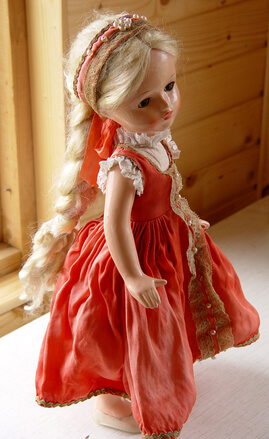Co-authored by Ms. Divya Srinivasan, LexOrbis Associate and Ms. Ragini Gupta, third year student of National Law University, Jodhpur.
Toys ‘R’ Us, one of the world’s largest toy retail chains and in the business for over 50 years has filed an opposition to the trademark application of Hair Are Us, a small Miami-based business that deals in hair extensions. Toys ‘R’ Us argues that ‘Hair Are Us’ ‘sounds too similar’ and could therefore confuse the public into thinking that it is ‘somehow connected’ to Toys ‘R’ Us and dilute the famous brand.[1] The concern is that failure to police their trademark could result in them losing it altogether, which was the fate met by the aspirin trademark when Bayer effectively abandoned it by allowing so many people to use it.[2] The owners of the growing hair extension business, on the other hand seem determined to fight back because, in their own words, “What’s in a name for us? It’s our everything.”[3]
Protecting prefixes and suffixes certainly is not unusual. For example, McDonalds owns many trademarks with the prefix ‘Mc’ and successfully contested a trademark infringement suit against a restaurant using the name ‘McBagels.’ The use of this prefix solely in combination with a generic food item is thus prohibited.[4]
This is not the first time Toys ‘R’ Us has taken legal action against trademarks with similar sounding names. In 1982, they brought a trademark infringement suit against a company dealing in children’s apparel called Kids ‘r’ Us, which in turn brought a counter-claim against Toys ‘R’ Us.[5] Since ‘Toys’ also sold children’s clothing, the plaintiff and defendant were direct competitors. The court decided in favour of Toys ‘R’ Us because of the similar nature of the parties’ businesses, the likelihood that consumers would believe that Kids ‘r’ Us had some connection with Toys ‘R’ Us, the fact that Kids ‘r’ Us had not developed sufficient goodwill in their mark when compared with the worldwide goodwill of Toys ‘R’ Us and the fact that the defendants adopted their mark with knowledge of the plaintiff’s mark, evidencing the defendants’ intention to take advantage of the goodwill of the plaintiff’s mark. Toys ‘R’ Us is part of a family of trademarks including allied business like Babies ‘R’ Us and Stickers ‘R’ Us which is why it has aggressively pursued claims against several ‘R Us’ businesses. Claims against Smokes ‘R’ Us[6] and Adults ‘R’ Us[7] were successful because the use of ‘R’ Us in connection with smoking paraphernalia and sexual products respectively could tarnish the plaintiff’s image as a retailer of child-friendly products. Toys ‘R’ Us even tried to sue a London based charity involved in cat protection called Cats ‘R’ Us, but were forced to back down after an outpouring of public support and protest against Toys ‘R’ Us.[8]
Interestingly, a little research shows that the Toys ‘R’ Us family of trademarks are not the only registered trademarks using ‘R’ Us. The phrase has been used for a number of entities as diverse as a business that sells tiles and shower heads (Yes, it’s called ‘Tiles R Us’) and a site for those who keep pet rats (Ratz are Us). Though the impact of this on the public perception of the Toys ‘R’ Us mark is not clear, this could still be an indicator of the possibility that ‘R’ Us is not associated with the famous toy retailer alone.
A look at the history of the claims pursued by Toys ‘R’ shows a few factors in the defendants’ favour. Firstly, the defendants here use ‘Are’ and not ‘R’ in their trademark. This is important because a claim brought against a firearms store[9] that used the domain name ‘gunsareus’ failed partly because the defendants did not use the distinctive ‘R’. Secondly, claims against businesses of a wholly different nature have often failed, which is what happened in the claims brought against Small Claims ‘R’ Us and Hotels ‘R’ Us. The Court, in an observation that is relevant for this case observed that the mere fact that some people may be reminded of the claimant’s mark on encountering the disputed mark does not in itself establish that the defendants would gain an undue advantage consequently.[10]Hopefully, these factors will be considered with regard to Hair Are Us, which stands to lose a lot more than Toys ‘R’ Us if unsuccessful.
[1] A Weave is Not a Toy, Timothy GeignerTechdirt,November 19, 2015 Available at, https://www.techdirt.com/articles/20151118/05330832846/weave-is-not-toy-toys-r-us-opposes-hair-extension-company-trademark.shtml.
[2] Toys R Us alleges Miami Company has infringed its trademark,Nadege Green, WRLN, November 17, 2015 Available at http://wlrn.org/post/toys-r-us-alleges-miami-company-infringes-its-trademark.
[3]Ibid.
[4]Anne Gilson Lalonde, Gilson on Trademarks § 5.03 (2011).
[5]Toys ‘R’ Us, Inc. v Canarsie Kiddie Shop, Inc., 559 F.Supp.1189 (1983).
[6] Toys ‘R’ Us Inc. et al. v. Smokes R Us of Pa. Corp. et al., case number1:11-cv-00820.
[7]Toys ‘R’ Us v. Akkaoui, 1996 WL 772709 (N.D.Cal., Oct.29, 1996)
[8] Alexandra Allred, Cats’ Most Wanted, (2005)
[9]Toys “R” Us, Inc. v. Feinberg, 26 F. Supp. 2d 639 (S.D.N.Y. 1998).(However, the summary judgment was later vacated by the Second Circuit Court on procedural grounds.)
[10]Judgment may be viewed here: https://www.ipo.gov.uk/tm/legal/decisions/2006/o21606.pdf




